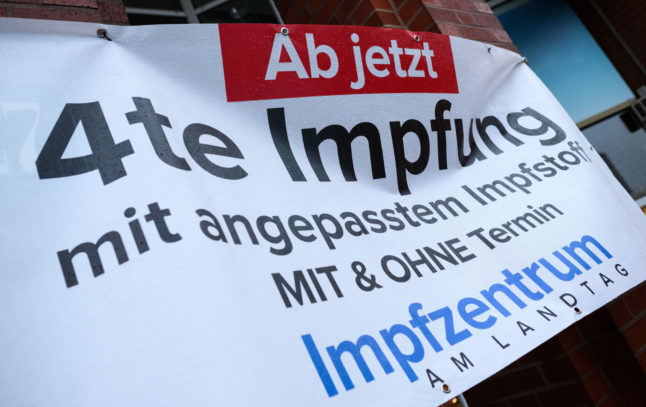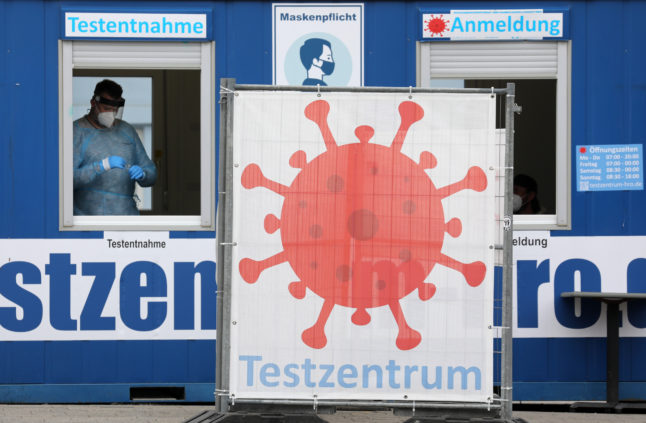Can my child get a Covid jab?
As a rule, all children over the age of five should be able to get a jab either at a vaccination centre, paediatrician or with a mobile vaccination team. However, not every state vaccination centre offers vaccinations for children every day – and there can be restrictions depending on your child’s circumstances.
Generally, vaccinations for children aged 5-12 are carried out by a paediatrician or other health professional with experience of treating children, so you may find that the service is restricted to certain days of the week or timeslots.
When booking an appointment, it’s therefore important to make sure that you’re going to the right place at the right time. You should be able to find information on when and where young children can get vaccinated on the government website of the state where you live, or by following the links for appointments listed in this article (in German.)
An alternative, and slightly easier route, is to get in touch with your paediatrician to discuss your child’s health and any risks associated with Covid and/or the vaccination. Though Covid has placed a lot of these practices under pressure lately, they will nonetheless be happy to discuss your options or even offer you an appointment for your child’s Covid vaccination at a later date.
READ ALSO: State by state: Where children in Germany can get vaccinated against Covid
What if my child has a pre-existing condition?
If your child is 5-12 years old has a pre-existing health condition such as asthma or a lung condition, you should be able to get an appointment for them with few issues. That’s because the Standing Vaccines Commission (STIKO) has primarily recommended Covid vaccinations for younger children with pre-existing health conditions – or those who have regular contact with someone in a risk group, such as an elderly grandparent.
However, STIKO has also made it clear that even perfectly healthy children shouldn’t be turned away if their parents are keen to get them vaccinated against Covid-19. There are exceptions, though.
If your child has no pre-existing conditions but has already recovered from a previous Covid illness, you’re likely to have a harder time getting them vaccinated at a state centre. In this case – and generally if they don’t have a pre-existing condition – it’s best to request a vaccination with a paediatrician first.
READ ALSO:
- German vaccine panel recommends Covid jabs for ‘at-risk’ young children
- Germany to roll out Covid vaccinations for 5-11 year olds
What do I need to bring?
When you turn up to your appointment, you’ll need to make sure you have at least one form of ID for your child with you. Generally, this will need to be a passport, ID card or birth certificate.
The yellow vaccination booklet, unfortunately, doesn’t count as ID – though you’ll need to have this with you to record your child’s vaccination. Since you don’t need health insurance to get a free-of-charge Covid jab, you won’t need to bring their health insurance card with you either – and it also won’t be accepted as a form of ID.
If your child has a pre-existing condition, you should also bring any necessary medical documents with you as proof.
How does it all work?
Firstly, it’s important to note that you will need to book an appointment rather than simply showing up. According to German news site Focus, demand is particularly high at lunchtimes, weekends and from 4pm onwards, so parents should bear this in mind when booking.
When you turn up for the appointment, you’ll need to check in with your name, date of birth, gender and home address. At this point, you’ll need to present your child’s ID and any other medical documents.
You will likely be asked the age of your child, whether they have a pre-existing condition and whether they have recently recovered from Covid. As mentioned above, your answers could determine whether your child is offered a jab at the vaccination centre or not.

The next step is to sign the medical history form and the consent form. At this point, you should have the opportunity to request a medical consultation if you want one.
For children aged 5-12, the vaccination will be carried out by a train paediatrician, and it will be with a lowered dose of BioNTech/Pfizer. After the vaccination is completed, the digital vaccination certificate will be printed out and the vaccination will be noted in the yellow vaccination booklet. In many vaccination centres, you’ll also be able to make an appointment for the second jab in a number of weeks, if you haven’t done this already.
What about children over the age of 12?
For children over the age of 12, it’s generally possible to get a first, second or booster jab at a vaccination centre with few problems. Just make sure you stick to the recommended intervals between doses, because failing to do so may result in you and your family being turned away.
For example, you should wait at least three months (or 90 days) after a Covid infection or first jab before turning up at the vaccination centre. The intervals between the second jab and booster, meanwhile, vary from state to state. In Berlin, for example, your child will only have to wait three months, while North Rhine-Westphalia insists on a five-month gap between the second and third dose.
READ ALSO: German state vaccination centres roll out booster jabs for teenagers




 Please whitelist us to continue reading.
Please whitelist us to continue reading.
Member comments